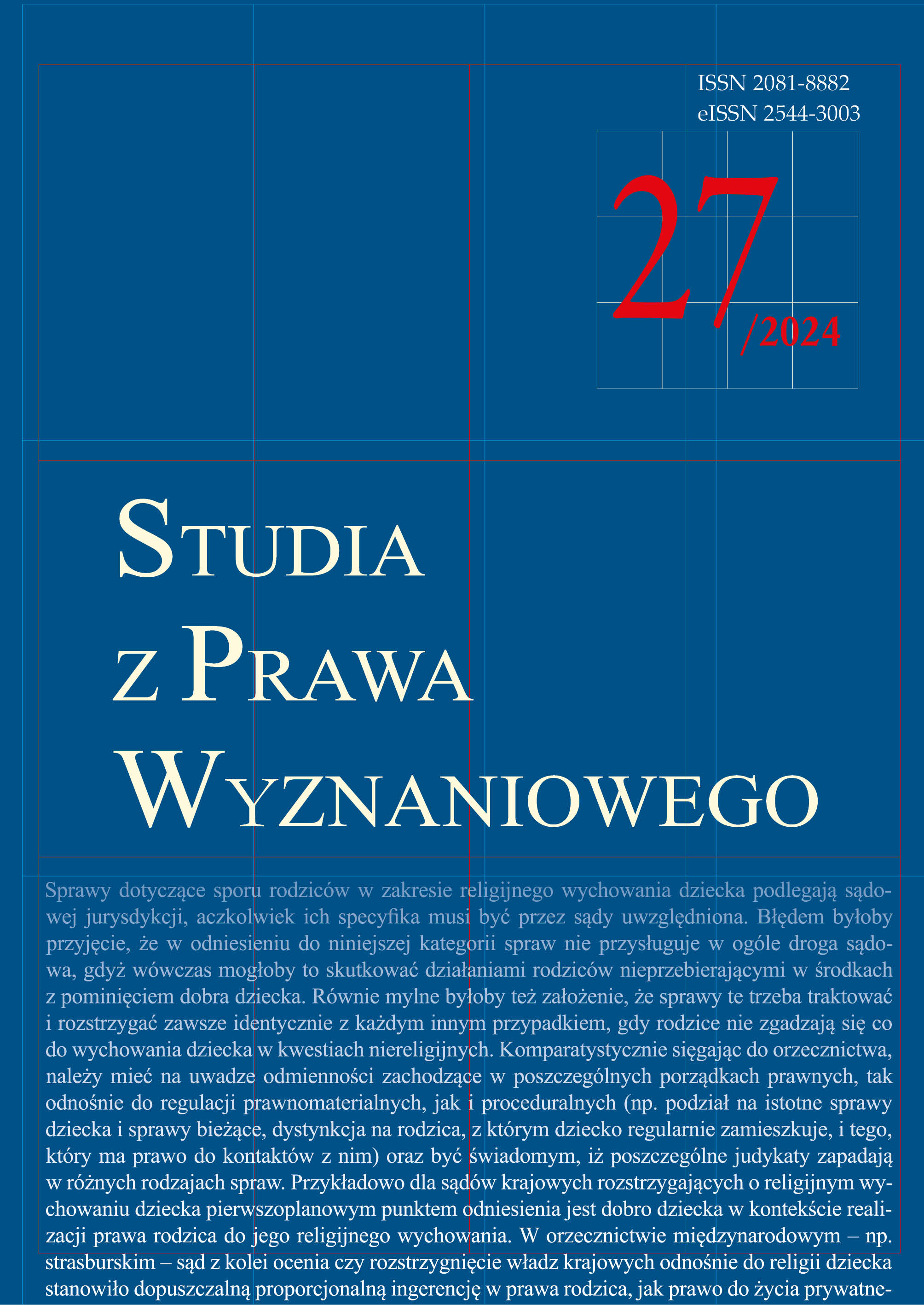Dopuszczalne różnicowanie sytuacji pracowników ze względu na religię, wyznanie lub światopogląd
Permissible differentiation between situations of employees based on religion, belief or worldview
Author(s): Małgorzata CzurykSubject(s): Law, Constitution, Jurisprudence, Human Rights and Humanitarian Law, Commercial Law, Administrative Law, Labour and Social Security Law
Published by: Katolicki Uniwersytet Lubelski Jana Pawła II
Keywords: churches and other religious organisations; religious freedom; wolność sumienia i religii; pracownik; pracodawca; dyskryminacja; dyskryminacja religijna
Summary/Abstract: Both believers and non-believers have equal rights in state, political, economic, social and cultural life. Accordingly, discrimination based on religion or religious convictions is prohibited, including within the framework of employment relations. However, in Polish law, an exception to the principle of non-differentiation among employees on the basis of religion, belief or worldview is set out in Article 183b § 4 of the Labour Code: it is not a violation of the principle of equal treatment for churches and other religious organisations, as well as organisations whose ethics are based on religion, beliefs or worldview, to restrict access to employment based on the same if the nature of their activities makes religion, beliefs or worldview a real and decisive professional requirement imposed on an employee, which is proportionate to achieving the legitimate aim of differentiating the situation of that person. This also applies to the requirement for employees to act in good faith and have loyalty towards the ethics of a church, other religious organisations and organisations whose ethics are based on religion, belief or worldview. The purpose of this article is to reflect on the permissibility of differentiating among employees on the basis of religion, belief or worldview. This requires identifying those who are entitled to apply the provision and criteria for its application. It is also necessary to draw attention to the emerging collision between the rights of an individual (the employee) and the rights of churches and other religious organisations and organisations whose ethics are based on religion, belief or worldview (employers) in the employment process and to the ways of resolving this collision. To balance the rights of the parties with the employment relationship and to prevent abuse, it is necessary to ensure that the court is able to verify whether the criteria of the counter-rule have been applied correctly in a specific situation. When resolving conflicts of rights that arise in this regard, courts should consider both the individual rights of employees and the guarantees and rights of churches and other religious and worldview organisations.
Journal: Studia z Prawa Wyznaniowego
- Issue Year: 2024
- Issue No: 27
- Page Range: 151-163
- Page Count: 13
- Language: Polish

